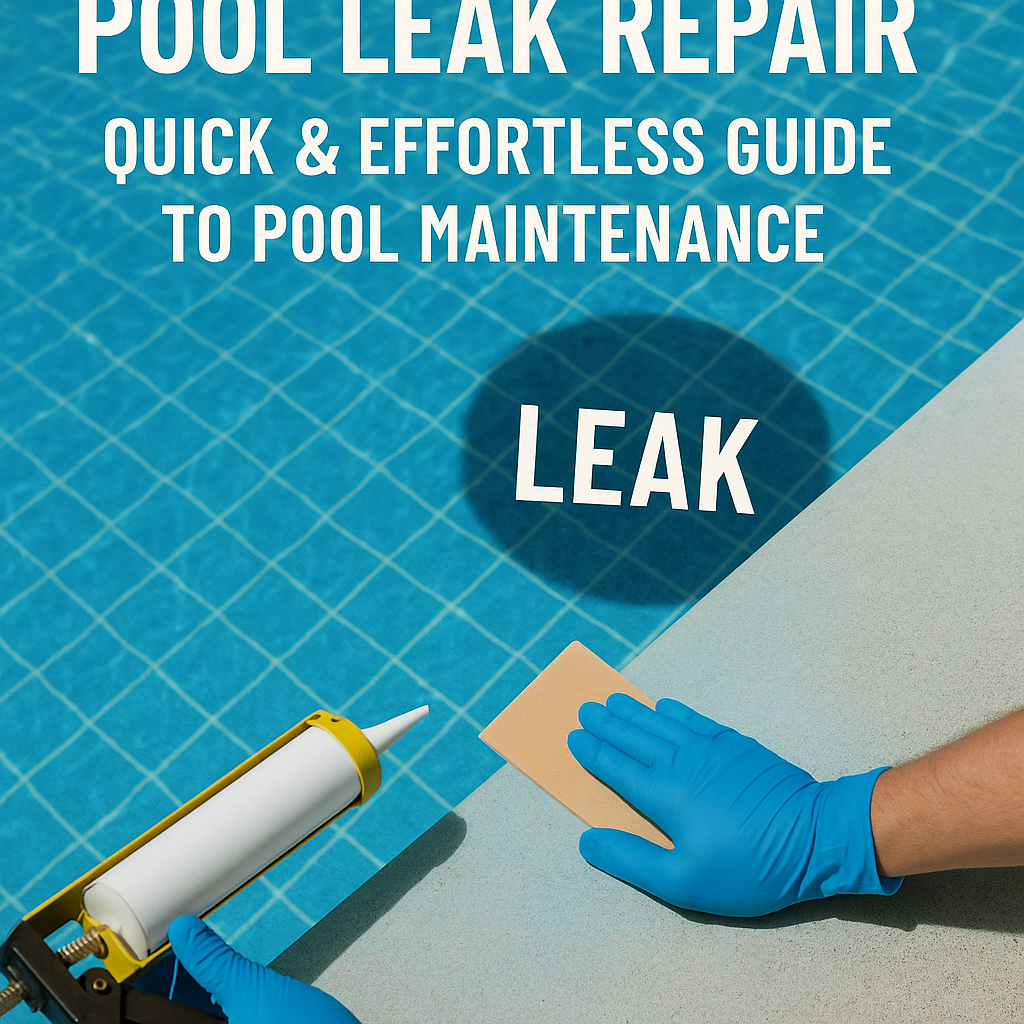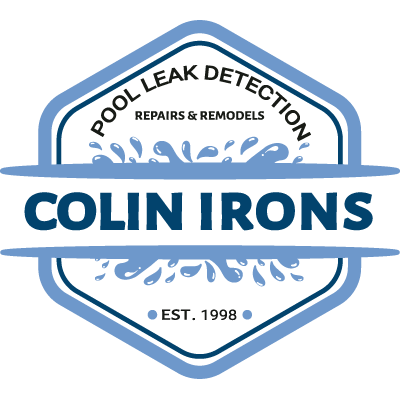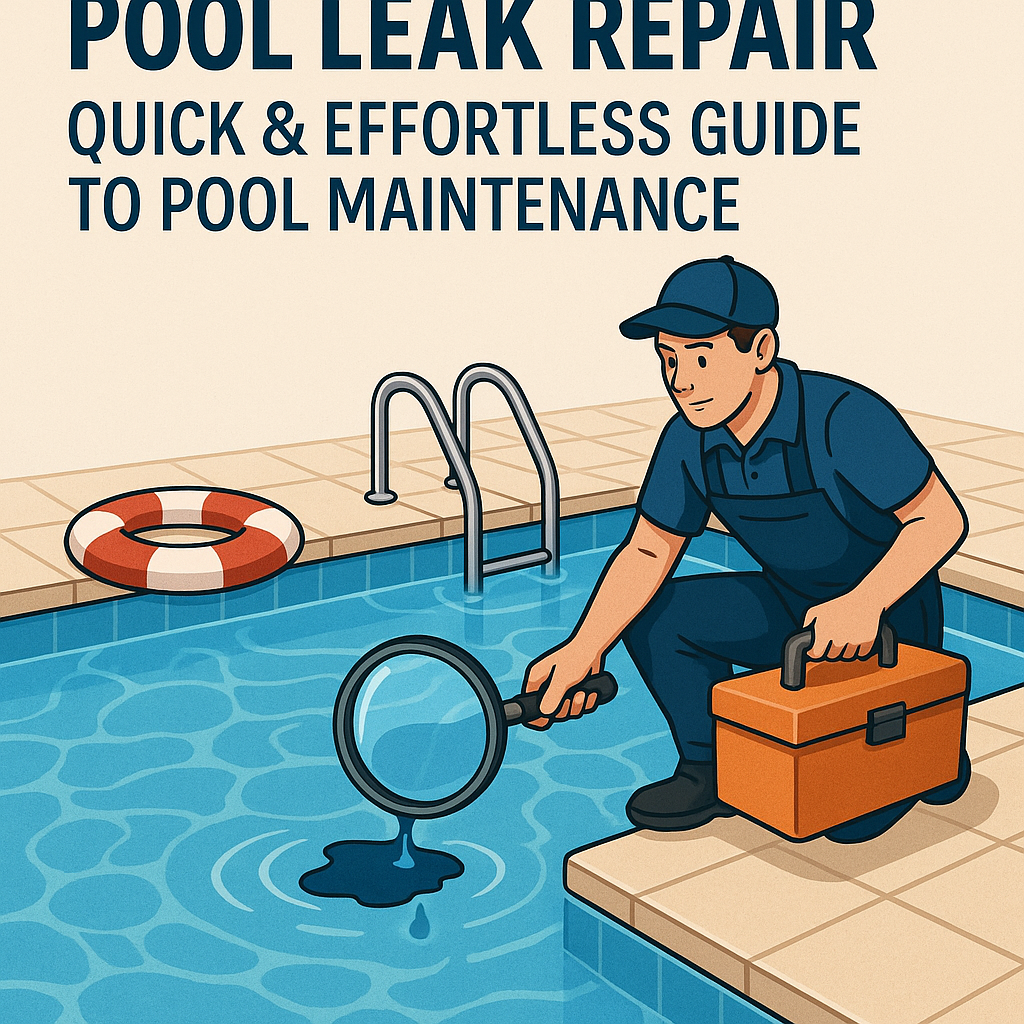Pool Leak Detection: How to Identify a Problem
Before we can even explore pool leak repair, we first need to understand pool leak detection. It would be futile to attempt to fix a problem that you haven’t properly identified. With summer approaching, you’d want to ensure that your pool looks inviting, right? Overlooking a pool leak could lead to water wastage, increased bills, and even structural damage.
So, how exactly do you detect a pool leak? Well, it’s not as difficult as you may think. The most reliable indicator of a pool leak is an unusual drop in water level. A normal pool will lose about a quarter of an inch of water each day through evaporation, especially in hot climates. If your pool water level drops significantly more than that, you probably have a leak on your hands.
If you suspect a leak, a simple way to verify your suspicions is through the bucket test. Fill a bucket with water and mark the water level. Similarly, mark the water level in your pool. Compare the two levels after 24 hours. If the pool level has dropped more than the bucket level, it’s likely that there’s a leak somewhere.
Pool Leak Repair: Pro Tips to Seal the Deal
The next step, once you’ve detected a leak, is pool leak repair. It could either be a professional job or a DIY. In case it’s the latter, here are a couple of tips to help you patch up your pool without much fuss.
Firstly, you need to pinpoint the exact spot of the leak. This could be done through some more water tests. Look for wet spots around the pool, walls, and equipment. Dye tests can also be helpful by adding a small amount of dye to the pool water near the suspected leak. If there’s a leak, the dye will be sucked towards it.
Once the leak area has been identified, you can choose the appropriate repair method. Small leaks often require a patching material made specifically for pools, while larger areas may need more extensive reparation like re-plastering the area or replacing the pool liner.
In some cases, the leak may originate from the pool plumbing system. In such instances, the services of a pool leak repair professional are necessary. They can properly diagnose the problem and offer a precise solution to prevent further leakage.
Pool Maintenance: Ensuring Longevity
A part of pool maintenance involves regular pool leak detection and repair. Neglecting small leaks can quickly escalate into a hefty repair bill. Furthermore, a poorly maintained pool could become a health risk due to bacterial and algae growth.
Maintaining your pool isn’t just about treating the water with chemicals. It involves checking the pool structure, equipment, and plumbing for any visible signs of wear and tear. Regular cleaning and checking water pH levels also fall under pool maintenance and can prevent pool leaks in the long run.
Conclusion
A swimming pool is a wonderful amenity to have in your backyard, especially during warm weather. However, the luxury of owning a pool comes with the responsibility of its upkeep. Regular pool maintenance, including pool leak detection and pool leak repair, ensures your pool stays in top condition for years to come.
Remember that while some pool leaks are easy to repair yourself, others may warrant professional intervention. Never hesitate to call in the experts if you suspect a complicated leak problem. Prevention and early detection are imperative to avoiding larger, more expensive problems down the line.
With a well-maintained pool, you will not only enjoy a refreshing oasis but also an increase in property value. So, take pride in your pool maintenance and dive into a trouble-free swimming season.



